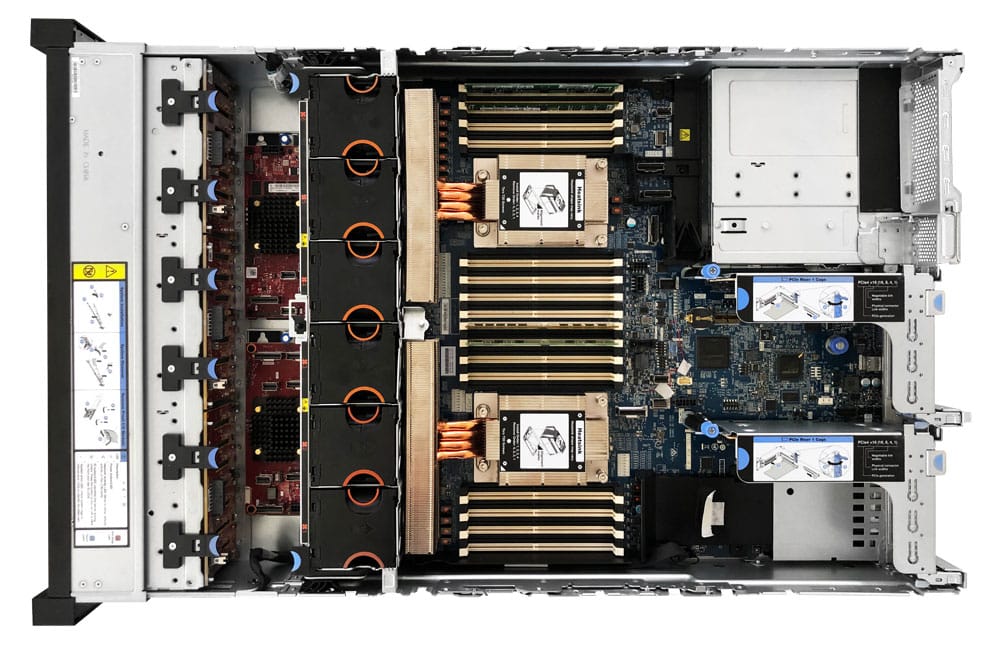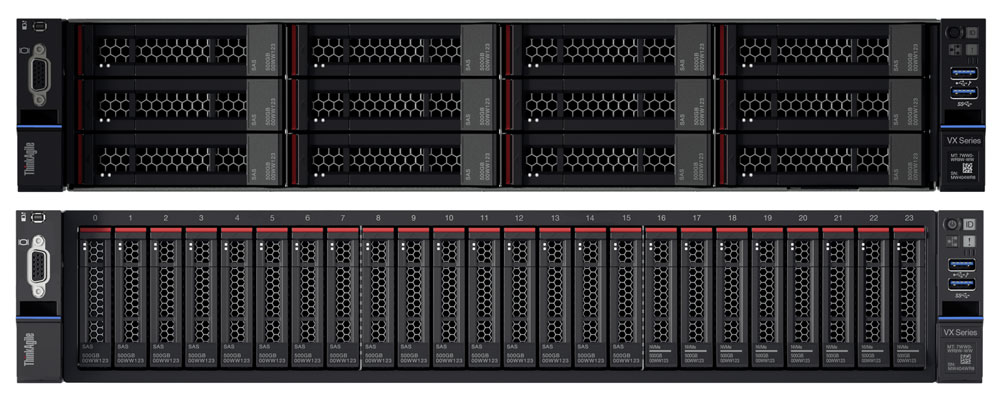Today the Lenovo Data Center Group announced new ThinkSystem and ThinkAgile hyperconverged infrastructure (HCI) solutions that support the recently announced AMD EPYC 7003 or 3rd generation EPYC processors. The new solutions also include ThinkAgile HX (with Nutanix) and ThinkAgile VX (with VMware vSAN) both of which will be powered by the new processors. Lenovo will also be offering the new solution as-a-Service through its TruScale Infrastructure Services.

One advantage of the AMD EPYC 7003 processors is the drop-in replacement. The previous 7002 required new motherboards and basically new systems to take advantage of all the benefits. This means the previous Lenovo systems that were ready for AMD EPYC 7002 can work with the new CPUs. However, the company is releasing the new 2-socket Lenovo ThinkSystem SR645 and SR665 and new Lenovo ThinkSystem 1-socket SR635 and SR655 servers powered by the new processors. Lenovo said that these new systems should see roughly 20% more performance in the 16-core category. The company also touts the following benefits:
- Organizations running their systems with accelerators and GPUs can expect to see up to 25% improvement in system performance and greater VDI density when using heart-of-the-market 16 core AMD EPYC 7003 series processor, compared to the previous generation
- Businesses running compute-intensive workloads such as HPC and AI can achieve up to 15% faster computational (floating point) results from the top of the stack AMD EPYC 7003 series processors, compared to the previous generation
- Customers running scientific research or engineering applications can expect to see up to 15% better performance using 48 to 64 core AMD EPYC 7003 series processors for improvement in-time-to-results supporting efforts to solve humanity’s greatest challenges
- The third-generation AMD based 2-socket ThinkSystem SR645 and SR665 servers will be available this month; the 1-socket ThinkSystem SR635 and SR655 servers will be available in June

On the hyperconverged side of things, Lenovo is working with VMware and Nutanix on new Lenovo ThinkAgile VX Series hyperconverged platforms. The latest platforms come with the new AMD EPYC 7003 CPUs and the benefits that come along with the new processors. On the VMware side, Lenovo is tightly integrating with VMware vSAN in order to create cloud-like simplicity. These new systems include:
- ThinkAgile VX3575-G: Designed for compute-heavy applications such as VDI and AI workloads with the ability to support up to eight NVIDIA GPUs
- ThinkAgile VX5575: Offers a storage-dense 2U solution for fast, high-capacity storage applications including email management, data, and analytics
- ThinkAgile VX7575 and ThinkAgile VX7576: Optimized 2U for high-performance workloads such as analytics and databases
- Third-generation AMD-based Lenovo ThinkAgile VX solutions will be available in the second quarter of 2021
The Nutanix part of the hyperconverged equation is seeing new and updated ThinkAgile HX series solutions built to take advantage of the AMD EPYC 7003 processors granting higher performance. These new systems include the ThinkAgile HX3375 and ThinkAgile HX3376. These new solutions are said to provide simplified operations, increased workload density, stronger data protection, and seamless application across clouds to enable a true hybrid architecture. These new solutions are expected in the third quarter of 2021.




 Amazon
Amazon